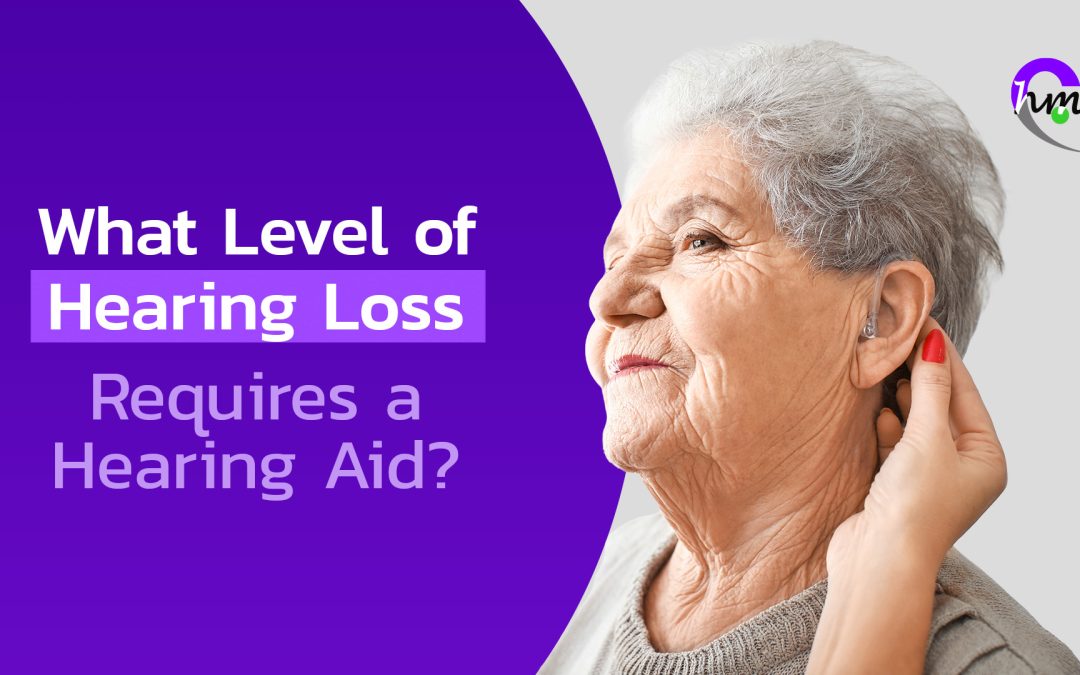What level of hearing loss requires a hearing aid?
The answer depends on your hearing loss levels. Mild hearing loss may not always need a device, but once loss becomes moderate to severe, hearing aids are usually recommended to improve clarity and prevent further difficulties. Understanding your hearing levels and getting professional advice from an audiologist is the best way to know when it’s time for support. At Hearing Matters, we provide expert testing and personalised care to guide you through the options.
Understanding Hearing Loss Levels
There are four main hearing loss levels that audiologists use to describe severity:
- Mild (26–40 dB): You may miss soft sounds and find it harder to follow conversations in noisy places.
- Moderate (41–55 dB): Everyday speech becomes difficult without amplification.
- Severe (71–90 dB): Even loud speech is hard to hear.
- Profound (90+ dB): Very limited hearing without devices, often requiring hearing aids or implants.
In many people, the first changes occur as high frequency hearing loss. This makes it harder to hear birdsong, children’s voices, or certain consonants in speech. If you’re curious about why high frequencies are usually the first to go, this article from New York Hearing Doctors provides a clear explanation.
When Hearing Aids Are Recommended
So, at what point do you need hearing aids?
- Mild hearing loss: Some people manage without aids, but situational devices or assistive listening technology can help in noisy places.
- Moderate hearing loss: Hearing aids are strongly recommended to support daily communication.
- Severe to profound loss: Hearing aids or, in some cases, cochlear implants are essential to restore communication.
It’s also important to recognise conditions like hidden hearing loss, where standard hearing tests may appear normal but people still struggle to hear conversations clearly. An audiologist can identify these cases and suggest solutions.
Signs You May Need Hearing Aids
Even before a hearing test, there are warning signs that you may need support:
- Asking others to repeat themselves often
- Turning the TV or radio up higher than others prefer
- Struggling to follow group conversations or noisy environments
- Ringing in the ears (tinnitus)
- Feeling exhausted after social interactions due to listening effort
If these sound familiar, it’s worth booking a test. Searching online for “an audiologist near me” is a common first step, but choosing a trusted provider like Hearing Matters ensures you’ll receive independent, professional advice.
Modern Hearing Aid Options
Today’s devices are far from the bulky models of the past. Modern hearing aids are discreet, digital, and packed with useful features. Options include:
- Bluetooth hearing aids that connect directly to your phone or TV.
- Rechargeable batteries for convenience and sustainability.
- Customised fittings to suit your lifestyle, whether you want something nearly invisible or high-powered.
If you’re comparing options across hearing aids in Australia, remember that the value isn’t just in the device, it’s also in the fitting, adjustment, and aftercare you receive. Hearing Matters specialises in tailoring devices to each patient for the best long-term results.
Why Testing Is Essential
The only way to know your exact hearing loss levels is through a professional hearing test. Online tools can give a basic indication, but they don’t replace a comprehensive assessment by an audiologist.
At Hearing Matters, our audiologists explain your results in plain language and guide you through whether hearing aids are needed. If you’re now googling “audiologist Adelaide” or nearby, our local clinics make expert care accessible.
Why Choose Hearing Matters?
- Independent advice: We’re not tied to one manufacturer, so we recommend what’s best for you.
- Personalised care: From mild hearing loss to profound cases, we tailor solutions to your lifestyle.
- Ongoing support: Adjustments, servicing, and aftercare are included.
- Local experts: Our audiologists across Australia combine clinical expertise with a caring approach.
Take Control of Your Hearing Health
So, what level of hearing loss requires a hearing aid? Once loss reaches moderate or beyond, or if you’re struggling in everyday situations, it’s time to consider support. The sooner you act, the more you protect your communication, confidence, and overall health.
👉 Don’t wait until conversations become frustrating. Book your free hearing test with Hearing Matters today and find out your hearing loss levels and the best options to keep you connected.
